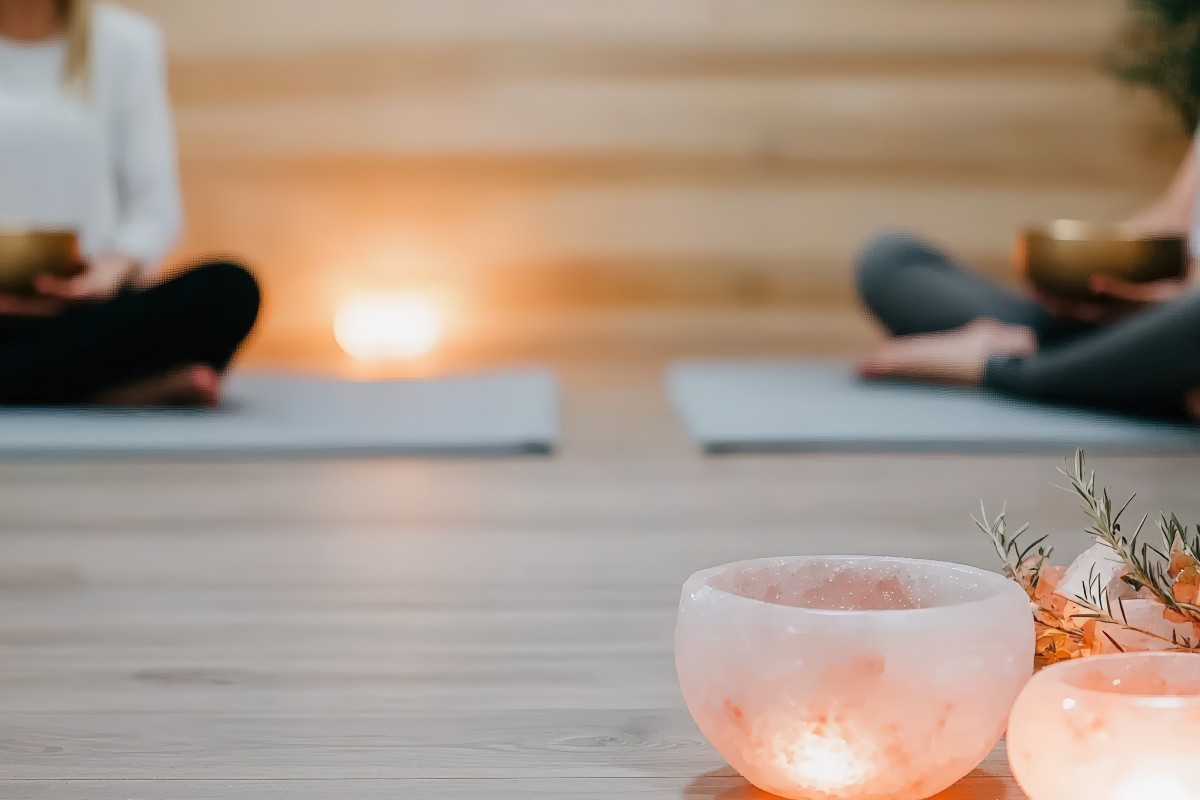
What Is a Sound Bath, and Could Having One Help You Sleep Better?
If your idea of a bath involves bubbles, candles and maybe a rubber duck — stick with us. A sound bath is a completely different type of bath. Firstly, there’s no water involved. But a sound bath can leave you feeling just as calm, relaxed, and ready for bed. And yes, it might just be the sleep secret you didn’t know you needed.
Discover how a sound bath may lead to a better night’s sleep here.
What is a sound bath?
A sound bath is a type of meditation. It involves you lying down, closing your eyes, and allowing yourself to be immersed in soothing sounds. Gongs, Tibetan singing bowls, chimes, and other instruments that create deep, resonant vibrations are some common examples of those used during a sound bath.
If you’re having a sound bath, you won’t have to do anything except lie there and listen. It’s a meditation practice that encourages you to be cocooned in sound, freeing your mind from worries and enabling you to be completely present in the moment.
Why do people swear by sound baths?
The vibrations from the instruments are thought to slow down brainwaves, calm your nervous system, and shift your body into that deeply relaxed state that is conducive to better sleep.
Lots of people report feeling lighter, less anxious, and way more ready for a good night’s sleep after one. When considering how noisy, fast, and stress-inducing modern life can be, taking half an hour to just lie still and listen doesn’t sound like the worst idea.
Can a sound bath actually help you sleep better?
Yes. And for many people, it does. Here’s how:
-
It calms the mind: Perfect if you’re the type of person who suddenly experiences a racing mind as soon as it’s time to lie in bed.
-
It relaxes the body: When your muscles are loose and your breathing slows, sleep follows naturally.
-
It lowers stress and anxiety: Less tension = deeper, better sleep.
-
It sets a peaceful bedtime routine: Doing something soothing before bed trains your brain to wind down and helps your body to start preparing for sleep.
And to experience a sound bath, you don’t even need to leave the house. You’ll find loads of guided sound baths on YouTube, Spotify, and other streaming service providers. Find one that works for you, pop in your earbuds, lie back and let the sound immersion wash over you.
Sound bath FAQs
Before you head off to find a sound bath soundtrack to soothe you to a restful slumber, let’s take a minute to answer some additional questions you may have lingering. Scroll on to explore our sound bath FAQs.
Do I need any special equipment for a sound bath?
Not at all. You just need somewhere comfy to lie down (a good bed helps!), and something to play the sounds — like a speaker or a pair of headphones.
How long should a sound bath last?
Even spending 10–15 minutes listening to a sound bath can help improve your sleep. But most sound baths last between 30–60 minutes. It’s completely up to you how long you spend being bathed in sound each night.
Do I have to meditate or ‘clear my mind’?
No. Simply lie back, listen, and breathe. Sound baths come with no pressure to “do” anything.
Can I fall asleep during a sound bath?
Absolutely — and lots of people do. That’s almost the point of having a sound bath!
Is it the same as white noise?
Not quite. White noise is more similar to static sound (think a fan or rainfall) and is constant. Sound baths use instruments to create flowing, wave-like tones that change and evolve over time.
Sound baths for sleep: final thoughts
If counting sheep isn’t doing the trick and your bedtime playlist is getting stale, a sound bath might just be your new go-to. Pair it with a comfy, supportive mattress and you’ll be benefitting from better sleep in no time.

Gemma Henry - Content Lead
Gemma finds sleep fascinating and describes the discovery aspect of her role as eye-opening. Her keen eye for detail and dedication to thorough research ensures that Bensons customers get the informative sleep-based advice they're looking for.